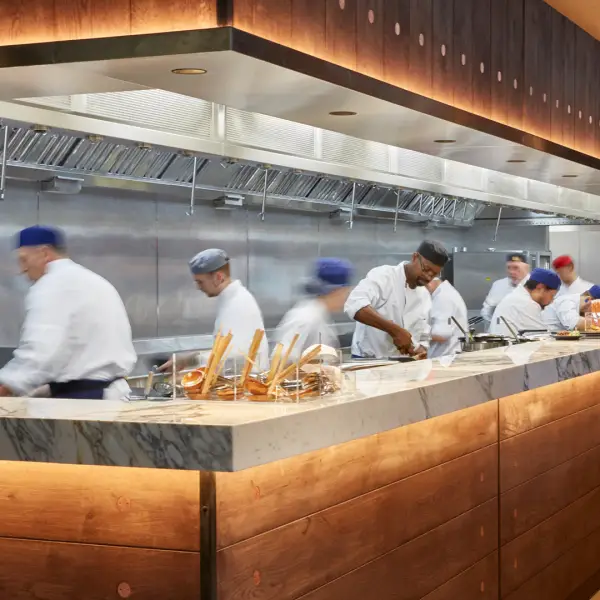treading softly
treading softly
'kaizen’ meaning ‘continual improvement’ is the japanese philosophy we live by. it inspires us to do better in all that we do. to make small positive choices every day for big change. we’ve been practising kaizen since 1992, when we opened as a single restaurant in london’s bloomsbury, inspired by fast-paced japanese ramen bars
30 years on, we have many things in common with our younger self. like the art of kaizen, the celebration of asian food and the obsession with fresh nourishment. but we have grown, and with that, comes a greater sense of responsibility
here, you can find actions we’re taking to tread more lightly on the earth. alongside some of the sustainability goals we’ve already met. in some areas, we’re further along our journey and closer to reaching our goals than in other areas, and by no means are we perfect. but we believe in small choices for big change. because progress takes time and begins with all of us
if you have any suggestions on how we could do better, we would really appreciate your feedback. it is deeply valued and inspires us everyday: https://www.wagamama.com/contact-us
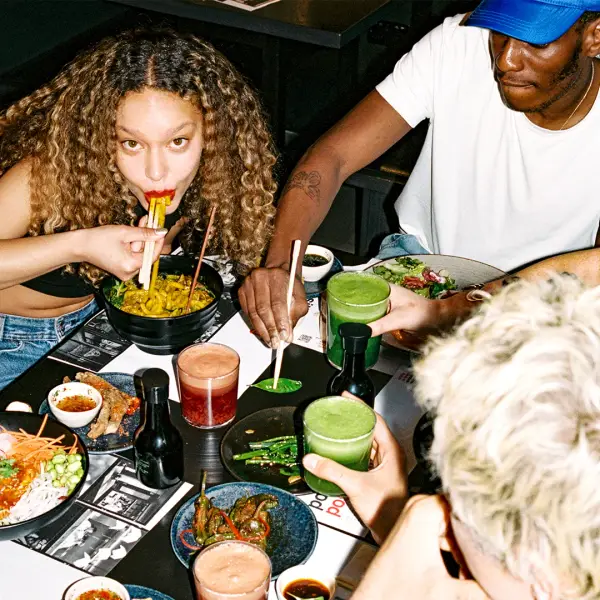
powered by PANGAIA
our teams' threads are now brought to you by the industry leading material science company, PANGAIA
pan. derived from the ancient greek pan. meaning all, entire, whole, + gaia. meaning mother earth and land
known for their innovation + advanced technology, PANGAIA brings together the latest trends in streetwear culture with earth conscious production methods
PANGAIA's mission is to accelerate an earth-positive future, where their products are better for the planet than if they did not exist. a journey we're excited to join + proud to support
our new uniform is made from organic cotton. these fibres are grown without toxic pesticides + treated with PPRMINT™, a plant-based peppermint oil that neutralizes + prevents the growth of odor-causing bacteria meaning less frequent washing is required
PANGAIA has gained the coveted b corp status + continues to work on its commitment to reinventing the material landscape with technology + problem-solving styles that are better for people and the planet
find out more about PANGAIA's impact here
find out more about our team's new threads:
find out morepositive eating + positive living
spreading positivity from bowl to soul is our purpose and we understand the power food has to lift spirits and nourish souls. but now, we’re told by science, what we eat is one of the most impactful choices we all have to reduce our footprint on the environment (poore + nemecek, Science Journal 2018)
eating a plant-based diet could help reduce the amount of land used for agriculture by 76%. it could also reduce greenhouse gas emissions from food by up to 49% (Schiermeier, eat less meat, 2019 + IPCC, Special Report on Climate Change + Land, 2019)
in 2017, we launched our vegan menu and since then, we’ve championed plant-based eating, because we believe vegan and vegetarian bowls pack just as much soul as any of their meat-containing counterparts
In 2021 as one of our actions for positive change, we met our pledge to make 50% of our menu plant-based. meaning half of the dishes on our menu are vegan or vegetarian.
clare oxborrow, senior sustainability analyst at friends of the earth, said:
broadening menus so that plant-based food is the first option, or a desirable one, is a great thing to do. the more people realise that it isn’t a compromise, and that these dishes are tasty and flavour-packed, the more appetite there will be to widen menus even further.
eating less and better dairy and meat is really important as we confront the climate and nature crises. more establishments will see that this initiative from wagamama is successful, and we encourage them to follow suit in making plant-based options both accessible and crucially, delicious.
offering our guests choice will always be important to us and we know choosing plant-based might not be everyone’s cup of miso. so, our menu will continue to bring to the bench all protein options, alongside a selection of new vegan and vegetarian showstoppers
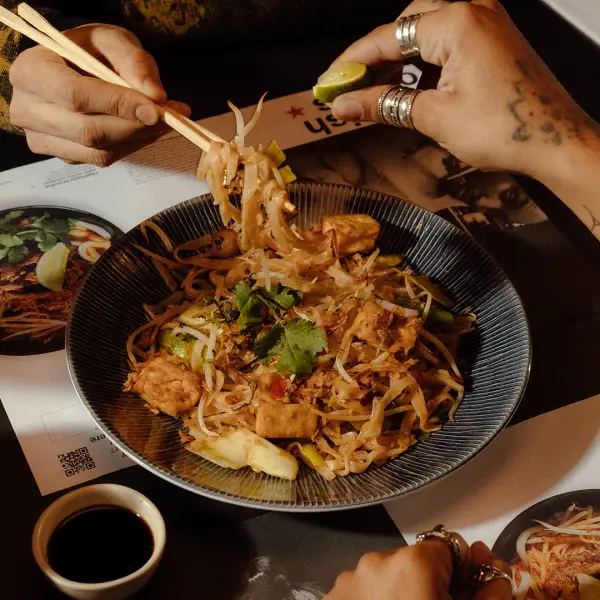
our plastic promise
our journey to improve the sustainability of our packaging has been four years in the making. delivering steaming ramens across the u.k. comes with it’s challenges, as does keeping our crispy squid crispy + stacking round bowls inside square bags. not to mention, the difficult landscape of u.k. waste streams
countless setbacks, complications, good meetings, bad meetings, creative partners, lockdowns, conversations with waste managers, product designers, environmental bodies and suppliers informed our new packaging
we’ve learnt that the climate crisis we are in is complex but the answer is simple: progress over perfection
recycled materials will make up the bases of our bowls. our katsu salads have moved to card, seeming like a little change, but we make a lot of katsus! and our bags are made from recycled kraft as well
all of these small choices make for big change. replacing up to 330 tonnes of virgin plastic each year. one bowl at a time
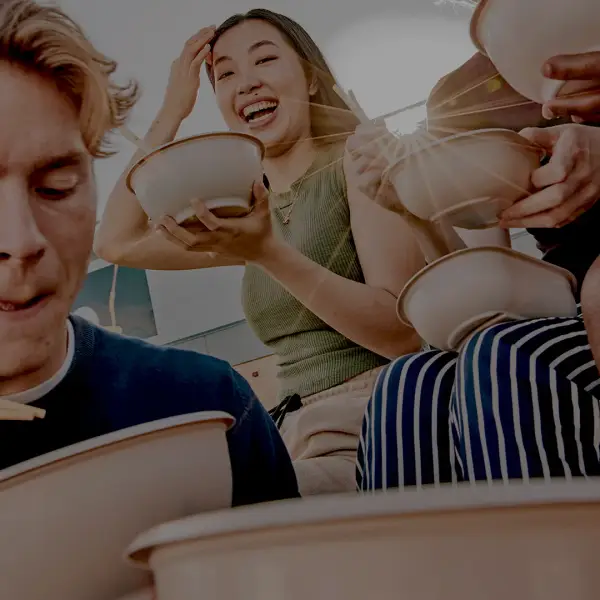
bowl bank
at the same time, as improving our packaging we rolled out our bowl-return initiative called bowl bank
in 2021, recycling rates were under 50% with over half of us placing items that could be recycled into our general rubbish bins. there's a considerable variation in how ‘household waste’ is handled + an increasing number of waste managers are burning plastic waste, causing air pollution, noise, smells, litter + traffic
our bowl bank initiative is aiming to tackle this issue
we're inviting you to return your packaging to your local wagamama restaurant. from there, our team will be on hand to accept your bowls, ensuring they will be commercially recycled. in exchange for your clean take-out bowls, we'll give you a side on us, next time you dine in. our bowl bank initiative is available at all wagamama restaurants excluding delivery kitchens + airports + is only available in the uk, excluding northern ireland
our journey is not complete. we will be looking at the sustainability of all essential brand materials next. this will include placemat/menus, chopsticks and napkins. watch this space for updates on these projects

tackling food waste
for years now, monitoring and reducing food waste in our kitchens has been a strength for us at wagamama. but, we recognise one of the biggest sources of food waste comes from ‘plate waste’ – the food leftover on guests plates.
working with the sustainable restaurant association, we collaborated on a project to measure and manage plate-waste to develop initiatives to solve this wide-spread issue.
we completed an audits of the volume + type of plate waste in a small sample of wagamama restaurants. we then used this data to identify actions to reduce this waste across all our restaurants, such as making sure portioning tools are always available for teams to use. watch this space for further updates
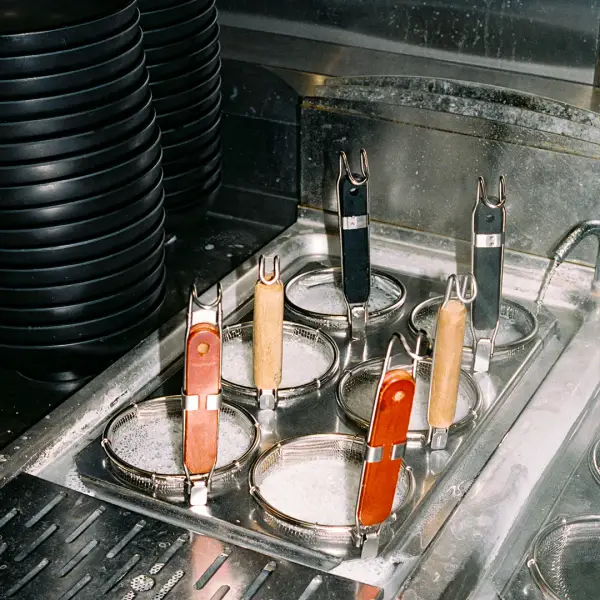
carbon. reduce first. offset second
we are founding members of the zero carbon forum, an organisation that sees the hospitality industry collaborate on sustainable initiatives to reduce carbon. as part of our responsibilities on the advisory board, and through working groups with our peers, we are driving change within our sector
under the paris agreement, globally we must limit global warming to 1.5c to curb the climate crisis. profound change is possible, but we must collectively make choices, both big + small, to limit our impact on the earth
it is important to us that our strategy focusses on reducing our carbon output first before offsetting. measuring our total carbon emissions allows us to set goals and identify where we can make reductions. our ambition is to be net zero by 2040

whats in scope?
scope 1 + 2
most actions we take as a business have a carbon-related consequence which can be measured across 3 scopes. scope 1 + 2 are the carbon emissions we have a direct hand in emitting. these are predominantly driven by the electricity and gas used to run our restaurants
since we began our carbon reduction journey, we have measured our direct footprint and are investing in technology and behavioural change tools to reduce it. we have also switched to renewable electricity for sites where we hold the supply contract, decarbonising the majority of our scope 2 footprint. we are installing electric kitchens in new wagamama sites where grid capacity allows, and over time we will explore ways to reduce and eventually remove gas from our estate
scope 3
scope 3 emissions are the indirect carbon emissions we contribute to creating as a business. like the emissions caused by our team members travelling to and from work everyday, or the emissions from growing and farming the ingredients in our food
scope 3 is one of our key treading softly focuses going forward. actions we’re taking to reduce these emissions include, but are not limited to:
collaborating with suppliers to reduce their emissions and protect nature
making informed ingredient and menu innovation decisions
sourcing locally where possible
building our restaurants sustainably
stay tuned for our progress, we will regularly update this page
